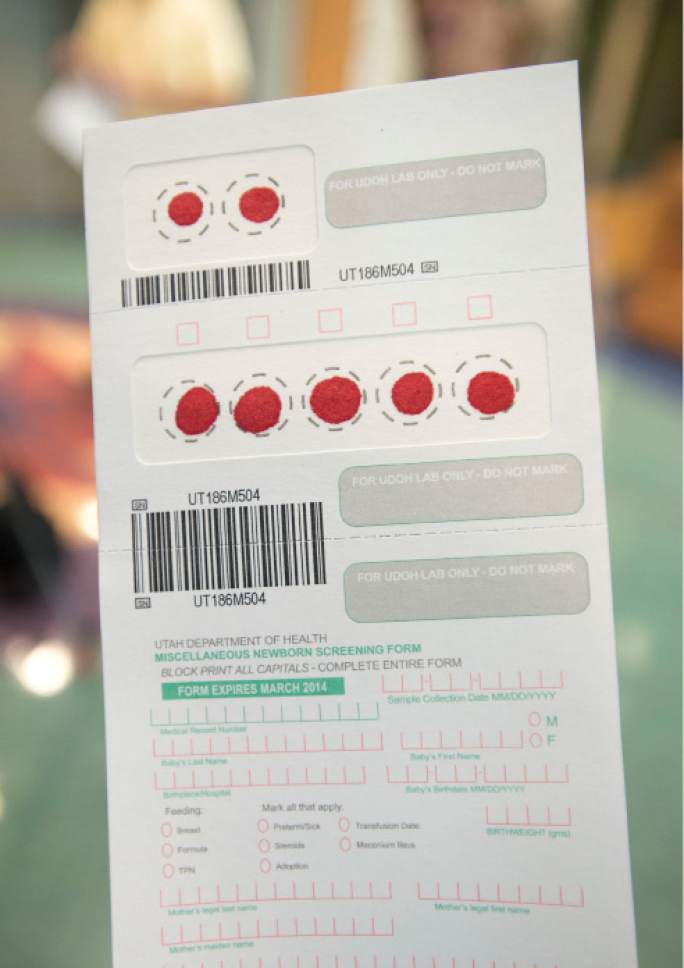This is an archived article that was published on sltrib.com in 2017, and information in the article may be outdated. It is provided only for personal research purposes and may not be reprinted.
Fees for mandatory newborn screening in Utah could rise over the next two years to accommodate additional testing for babies.
The Utah Department of Health (UDOH) is hoping to add testing for up to four new diseases to the screening, health officials told the state Legislature's Social Services Appropriations Committee on Tuesday. Those additions, if approved, could boost the price of screenings kits by as much as $20 between 2018 and 2019.
The kits currently cost $112.16, paid directly by hospitals, midwives and birthing centers, which then pass the charges on to families after birth.
The price was raised last year from about $103 to pay for the purchase new testing software, said program manager Kim Hart, and kit prices have risen another $16 or so apiece since 2013.
The Newborn Screening Program tests every baby born in Utah – about 51,500 babies in 2016 – for 42 diseases within the first 24 and 48 hours of birth and again at two weeks old.
More than 150,000 blood, hearing and heart tests were performed on infants last year, according to UDOH data, and more than 1,000 disorders in newborns were found. The proposed test additions would be part of an infant's blood screening.
The new tests could detect disorders that affect motor function, the nervous system and how the body metabolizes enzymes. If all four are approved by the Newborn Screening Advisory Committee, an estimated 11 more babies with disorders could be diagnosed each year, officials said.
"Newborn screening is a critical public health function," said Heather Borski, director of UDOH's division for disease control and prevention. "The difference of hours can make a huge difference in the quality of life for these kids."
Only parents with religious objections can forgo newborn screenings.
The Utah program, with an estimated yearly cost of $5.7 million, is funded almost completely through kit fees, with only 6 percent of its yearly spending drawn from federal funds.
Further changes in kit fees could be made as program managers review lab costs and other administrative costs within the Department of Health, Borski said. Administration costs are not currently factored into the kit fees, but Borski estimated those would make up about one to two percent of the overall cost.
Program managers hope to have fee hikes approved during the next legislative session, which convenes in January.
kgifford@sltrib.com Twitter: @kelgiffo —
Proposed New Tests
• Spinal Muscular Atrophy
• Mucopolysaccharidoisis Type I
• X-Linked Adrenoleukodystrophy
• Glycogen Storage Disease Type II (Pompe)
Source: Utah Department of Health



